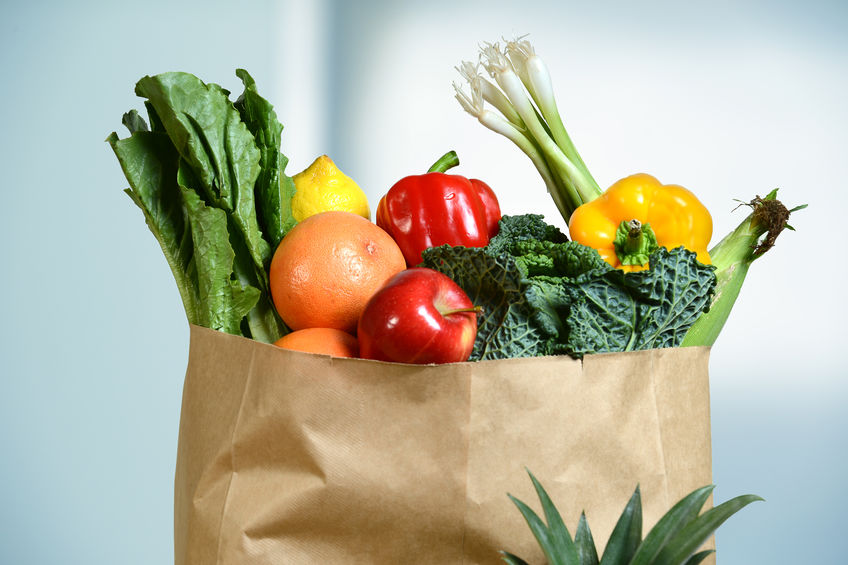Store fruits and veggies right—here’s how.
Are you tossing more produce in the trash than you’re eating each week? Here’s how to store some of the most common fruits and veggies to maintain their flavor, texture and nutritional value longer—and avoid wasting produce (and dollars).
Salad greens
Refrigerate salad greens in a perforated plastic bag with a paper towel (to absorb condensation) for 3 to 7 days. (Purchase fresh produce bags with moisture vents or make your own by cutting six to eight small holes in a 1-gallon bag.)
Citrus fruit
Store citrus fruit at room temperature for up to a week or in the refrigerator for up to 2 weeks.
Melons
Wash all melons before cutting, then store cut melons, covered, in the refrigerator. Watermelon chilled longer than 3 days loses flavor and its deep red color.
Kiwifruit
Ripen kiwifruit in a paper bag at room temperature until the fruit gives to gentle pressure. Refrigerate ripe kiwifruit in a plastic bag (to retain moisture) for 2 to 4 days.
Asparagus
Refrigerate asparagus for up to 4 days upright in a container with an inch of water and a plastic bag loosely draped over the top to trap moisture.
Berries
Refrigerate berries in a vented plastic clamshell container for 2 to 5 days. Tip: Fruits generally require lower humidity (and release more ethylene gas) than vegetables, so store in separate drawers, if possible.
Potatoes
Unrefrigerated potatoes have the best flavor, but new (baby) potatoes are more perishable than mature potatoes, so refrigerate them if you won’t use them within 3 days.
Papaya
Ripen papaya at room temperature in a paper bag until the skin turns from green to yellow-orange. Refrigerate ripe papaya in a plastic bag for up to 3 days.
Summer squash and zucchini
Place squash in plastic wrap (or a bag) and refrigerate for 3 to 5 days.
Bell peppers
Refrigerate bell peppers for up to 1 week in plastic bags. Keep them away from ethylene-releasing fruits such as apples, pears, peaches and melons. Fruits that release ethylene will decrease the product quality and shelf life of foods stored around them, but ethylene is not harmful to humans.
Broccoli
Refrigerate broccoli in a perforated plastic bag for up to 5 days.
Peaches
Ripen peaches at room temperature until the fruit gives to gentle pressure. Refrigerate ripe peaches in a perforated plastic bag for 3 to 5 days.
Tomatoes
For best flavor, store tomatoes at room temperature until ripe. Once cut, store, covered, in the refrigerator for up to 3 days.
Carrots
Refrigerate carrots for 1 to 2 weeks in a perforated plastic bag, away from produce that releases ethylene gas.
Tip: Paper towels help absorb excess moisture in crispers. Replace weekly.
Licensed with Permission from Meredith Corp.© Meredith Corporation. All rights reserved. Used with permission.
